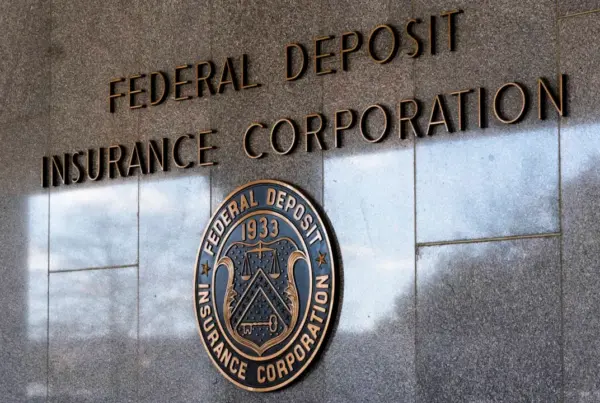Introduction
On August 23, 2024, the Federal Deposit Insurance Corporation (FDIC) proposed significant amendments to its regulations concerning brokered deposits. This regulatory update aims to enhance the stability of the banking sector by refining the definition of “deposit broker” and instituting new compliance requirements. The significance of this proposal cannot be overstated, as it reflects the FDIC’s ongoing commitment to address evolving risks in the financial landscape.
Historically, the regulation of brokered deposits has been governed by Section 29 of the Federal Deposit Insurance Act (FDIA), which has undergone various amendments to adapt to changing market dynamics. The primary concern prompting this regulatory action is the potential systemic risk posed by brokered deposits, particularly during periods of economic uncertainty.
Key Regulatory Changes & Analysis
1. Expansion of the Definition of Deposit Broker
The proposed rule expands the definition of “deposit broker” to encompass a broader range of entities involved in the placement of deposits. Key changes include:
- Inclusion of Fintech Firms: The definition now explicitly includes fintech companies that aggregate deposits on behalf of consumers.
- Investment Platforms: Entities offering deposit products as part of a broader financial service portfolio are also classified as deposit brokers.
This expansion aims to capture the full spectrum of intermediaries influencing deposit flows, thereby enhancing regulatory oversight.
2. New Compliance Requirements
The proposed amendments introduce several compliance obligations for deposit brokers, including:
- Mandatory Registration: All deposit brokers must register with the FDIC, providing detailed operational information and disclosures about their relationships with banks.
- Enhanced Consumer Disclosures: Brokers will be required to inform consumers about the risks associated with brokered deposits and the nature of their relationships with financial institutions.
These requirements are designed to promote transparency and protect consumers from potential risks.
3. Impact on Financial Institutions
The regulatory changes will have significant implications for various stakeholders in the financial sector:
- Banks: Increased compliance costs and operational adjustments will be necessary to accommodate the new registration and disclosure requirements.
- Fintech Companies: The expanded definition may necessitate changes to business models and operational practices to ensure compliance with the new regulations.
- Consumers: Enhanced disclosures are intended to provide consumers with better information regarding the risks associated with brokered deposits.
Legal and Industry Implications
The proposed amendments present several legal and operational challenges for affected businesses:
- Compliance Burdens: Financial institutions may incur substantial costs related to the registration process and ongoing compliance with the new requirements.
- Potential Legal Challenges: The broadening of the deposit broker definition may lead to litigation as entities seek to contest their classification or the implications thereof.
- Regulatory Risks: Non-compliance could result in enforcement actions by the FDIC, including fines, restrictions, or other penalties.
To mitigate these risks, financial institutions should conduct thorough assessments of their current practices and seek legal counsel to navigate the complexities of the new regulations.
Recommended Actions & Compliance Strategies
Affected parties should take proactive steps to ensure compliance with the proposed rule:
- Conduct a Compliance Review: Evaluate existing operations and partnerships with deposit brokers to identify necessary adjustments.
- Prepare for Registration: Develop a comprehensive strategy for timely registration with the FDIC, ensuring all required information is accurately compiled.
- Update Contracts: Revise agreements with deposit brokers to align with new disclosure obligations and compliance standards.
- Engage in Public Comment: Stakeholders are encouraged to participate in the public comment period to express concerns or support for specific aspects of the proposal, potentially influencing the final rule.
Conclusion & Next Steps
The FDIC’s proposed amendments to brokered deposit regulations represent a significant shift in the regulatory framework for financial institutions. Key takeaways include the expanded definition of deposit brokers and the introduction of new compliance requirements that will impact banks and fintech companies alike.
The timeline for implementation will depend on the finalization of the rule, with potential adjustments following the public comment period. Stakeholders should remain vigilant for further regulatory developments and prepare for the possibility of legal challenges. Proactive compliance measures will be essential for navigating this evolving regulatory environment.


